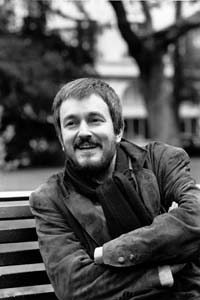Jean-Jacques Beineix
This article needs additional citations for verification. (August 2017) |
Jean-Jacques Beineix | |
|---|---|
 Beineix in 1989 | |
| Born | 8 October 1946 Paris, France |
| Occupation | Film director |
| Years active | 1977–present |
Jean-Jacques Beineix ([bɛnɛks]; born 8 October 1946) is a French film director whose work is generally seen as the best example of what came to be called the cinéma du look. Critic Ginette Vincendeau defined the films made by Beineix and others as "youth-oriented films with high production values...The look of the cinéma du look refers to the films' high investment in non-naturalistic, self-conscious aesthetics, notably intense colours and lighting effects. Their spectacular (studio based) and technically brilliant mise-en-scène is usually put to the service of romantic plots." The cinéma du look included the films of Luc Besson and Léos Carax. Luc Besson, like Beineix, was much maligned by the critical establishment during the 1980s, while Carax was much admired.[1] In late 2006, Beineix published a first volume of his autobiography, Les Chantiers de la gloire (in French only). The title alluded to the French title of Stanley Kubrick's film, Les Sentiers de la gloire (Paths of Glory).
Biography[]
In 1964, Jean-Jacques Beineix started his career as Jean Becker's assistant director on the famous French TV series, , until the end of 1967. Then, in 1970 he worked for Claude Berri and in 1971 for Claude Zidi. In 1977, he directed his first short movie Le Chien de M. Michel which won the first prize at the Trouville Festival. In 1980, he directed his first feature film Diva which received four Césars. The film was also entered into the 12th Moscow International Film Festival.[2] His second feature, Moon in the Gutter, was nominated for the Palme d'Or at 1983's Cannes Festival. That film was nominated for three Césars in 1984. It won one award - the Best Production Design category.
In 1986, Jean-Jacques Beineix directed Betty Blue (original title: "37°2 le matin"), in which Béatrice Dalle and Jean-Hugues Anglade appeared. In 1987, that film was nominated for the Best Foreign Language Film Oscar and in the same category at the same year’s British Academy Film Awards and Golden Globes. It won the 1986 Montréal World Film Festival’s Grand Prix des Amériques and Most Popular Film awards and, in 1987, the Boston Society of Film Critics award for best foreign language film and one – Best Poster - of the nine Césars for which it was nominated. He directed Roselyne et les lions in 1989, in 1992 and Mortel Transfert in 2001. The 1992 Seattle International Film Festival awarded Beineix its Golden Space Needle Award for Best Director on the strength of Betty Blue and IP5: L'île aux pachydermes.

Jean-Jacques Beineix created his own production company in 1984, Cargo Films, to keep artistic independence. Betty Blue (37°2 le matin) was his first film produced by Cargo Films. Jean-Jacques Beineix is executive producer of all films produced by Cargo Films. The company produces feature films and documentaries on a wide variety of themes from science to art, to women’s rights to social problems. Several films have been made in partnership with national scientific organizations such as CNES and CNRS.
In 2008, Jean-Jacques Beineix directed a corporate film of CNRS, 2 infinities (L2i). This film was shown in October 2008's New York Imagine science film festival.
Filmography[]
- 1977 - Le Chien de Monsieur Michel - short movie
- 1981 - Diva - starring Wilhelmenia Wiggins Fernandez, Frédéric Andréi
- 1983 - Moon in the Gutter - starring Gérard Depardieu, Nastassja Kinski
- 1986 - Betty Blue - starring Jean-Hugues Anglade, Béatrice Dalle
- 1989 - Roselyne et les lions - starring Isabelle Pasco, Philippe Clévenot
- 1992 - - documentary
- 1992 - - starring Yves Montand, Olivier Martinez
- 1994 - - documentary
- 1994 - - documentary
- 1997 - - documentary
- 2001 - Mortel transfert - starring Jean-Hugues Anglade, Hélène de Fougerolles
References[]
- ^ Powrie, Phil (2001). Jean-Jacques Beineix. Manchester: Manchester University Press. p.1. ISBN 9780719055331.
- ^ "12th Moscow International Film Festival (1981)". MIFF. Archived from the original on 2013-04-21. Retrieved 2013-01-26.
External links[]
| Wikimedia Commons has media related to Jean-Jacques Beineix. |
- 1946 births
- Living people
- French film directors
